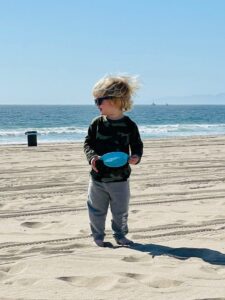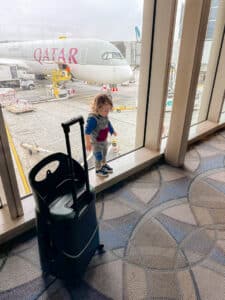The Power of Bilingual Parenting: 25 Facts You Need to Know
The decision to raise a child as bilingual can be an overwhelming one.
Although we’re bringing our family up in the United States, my husband grew up in Quebec, with French as his first language. We knew his French-and-English bilingualism is something we wanted to pass down to our son and daughter, but teaching them twice the vocabulary and all the extra language-specific nuances seemed like a daunting task.
As a licensed medical provider with experience in psychology, I had learned that young minds were like sponges, and I knew that babyhood was the best time to start exposing our children to both languages. With a little research — and with input from pediatricians and speech therapists — we settled on a comfortable method of using both English and French that works well for our family.
Whether you’re thinking of raising your children bilingually or you’re already in the thick of it, we’ve rounded up all the current research on the benefits of knowing two languages, the effects of a bilingual upbringing on speech development, and the best techniques to boost vocabulary for bilingual children.
Why raise your child to speak two languages?
1. Infants raised in bilingual households show better cognitive skills as early as seven months old.
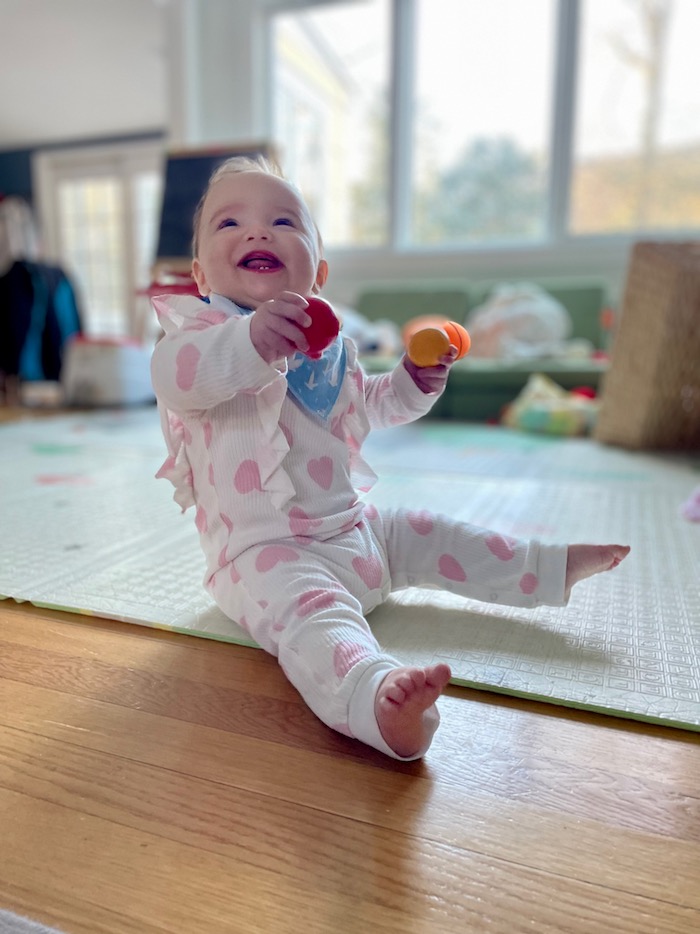
Babies display benefits of a bilingual upbringing long before speaking their first words. Research has shown that seven-month-old infants raised in bilingual households display better attention skills and cognitive conflict management than those raised in monolingual households.
2. Bilingual babies are more flexible learners.
In one popular study, researchers looked at 12-month-old infants immersed in bilingual or monolingual environments at home. The bilingual babies were better able use different speech patterns they heard to predict the changing location of a toy. The investigators concluded that bilingual babies may already be more flexible learners than their monolingual peers, even before they utter their first words.
3. Bilingual children may have better empathy.
One research study showed that children exposed to multiple languages at home were better able to interpret the perspectives of others in a controlled experiment, whereas monolingual children had more difficulty.
4. Kids raised bilingually have greater overall academic achievement.
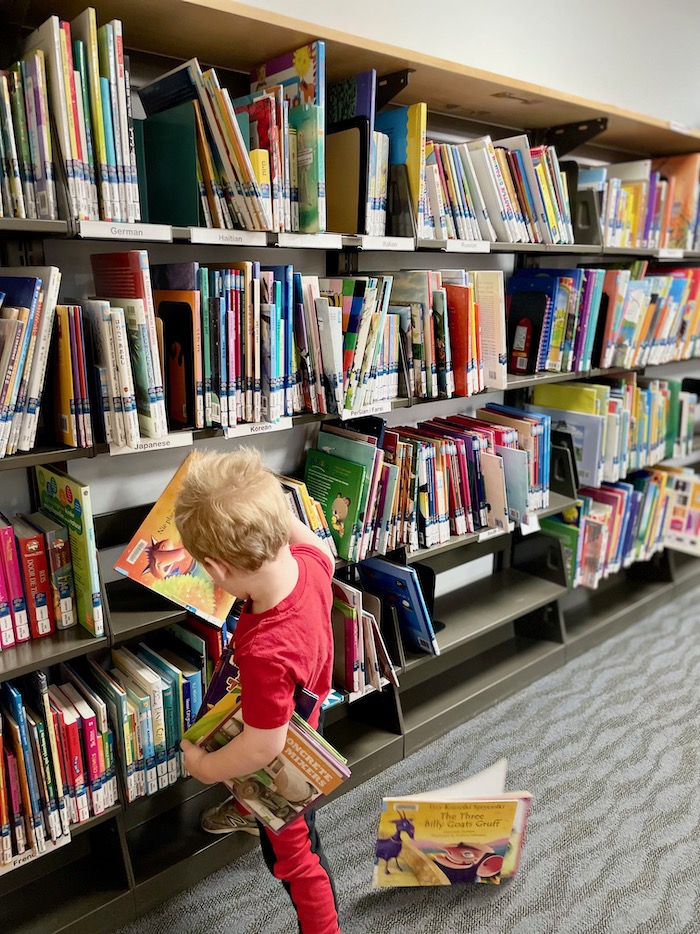
Improved academic performance is present in multiple categories, including reading and math.
5. Raising your child in a bilingual environment opens the door to mastering more languages later in life.
It’s easier for a bilingual person to learn a third language than it is for a monolingual person to learn a second language. The bilingual brain has already had significant practice managing interference of multiple language inputs at once, and may demonstrate more precise attention to detail.
This is one fact that has rung true in our own experiences. Having been raised to speak English and French fluently, my husband was of the unpopular opinion that Spanish and Portuguese were some of the easier classes he took in college.
6. A bilingual childhood equips adults with a wide range of cognitive benefits.
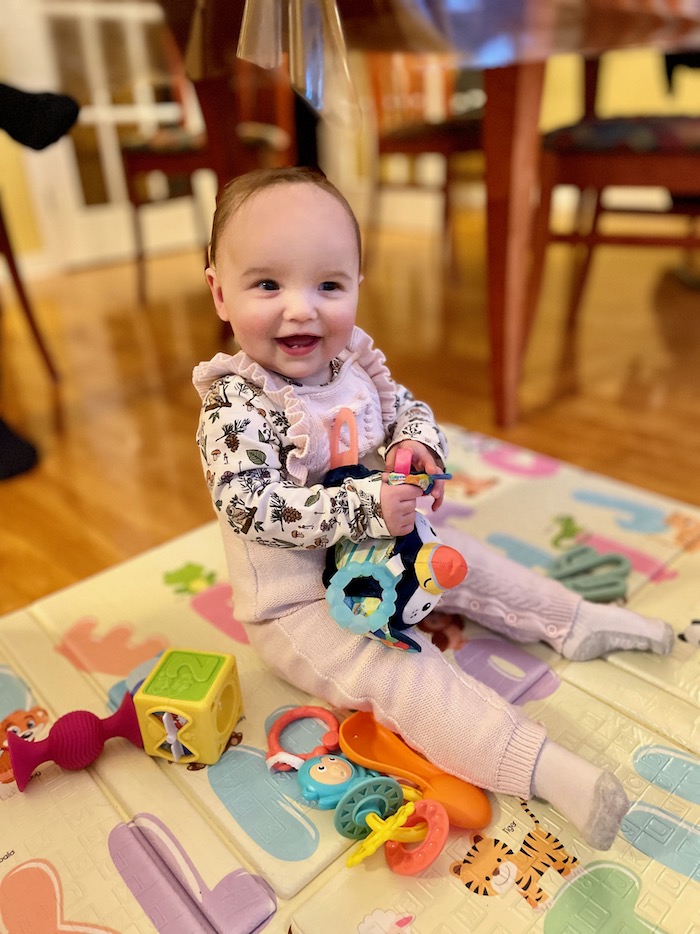
Bilingual adults tend to have sharper cognitive skills, including attention, working memory, abstract thinking, conflict management, and inhibition control.
7. Bilingual people may make more money.
One Canadian research study enrolled Francophones in Quebec, where where the official language is French. Researchers found that the participants who knew English better — and used it more regularly — achieved higher economic earnings.
8. A bilingual upbringing continues to provide benefits, even in older adulthood.
Evidence shows that older bilingual adults maintain sharper cognitive skills and better memory, and may be less susceptible to symptoms associated with Alzheimer’s.
How do bilingual environments affect language development?
9. Total vocabulary size is similar between monolingual and bilingual children.
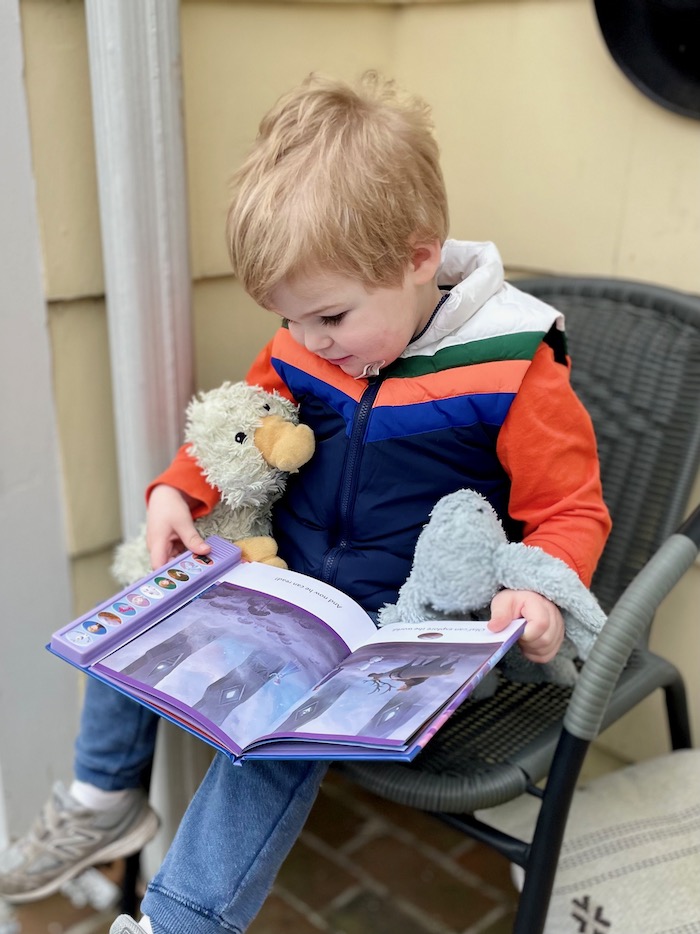
As speech develops, children who learn one or two languages tend to have the same number of vocabulary words. The proportion of a bilingual child’s vocab in each language is directly related to the amount of time they’re exposed to it.
10. Bilingual babies can distinguish between two languages even before they start speaking.

Experimental studies have shown that bilingual babies begin to understand two languages from the very start, using a language development process that’s similar to babies learning only one language. Our youngest is only nine months old, and yet she already understands simple commands in both English and French.
11. There is no evidence that exposure to two language confuses children.
Experts and parents alike used to worry that raising a child in a bilingual environment might make it difficult for them to separate the languages when they start speaking. Researchers have shown that there is no evidence to support this concern. In fact, most children end up learning the translations of their vocabulary words in each language.
12. Children learn early on to alter their language choice depending on who’s listening.
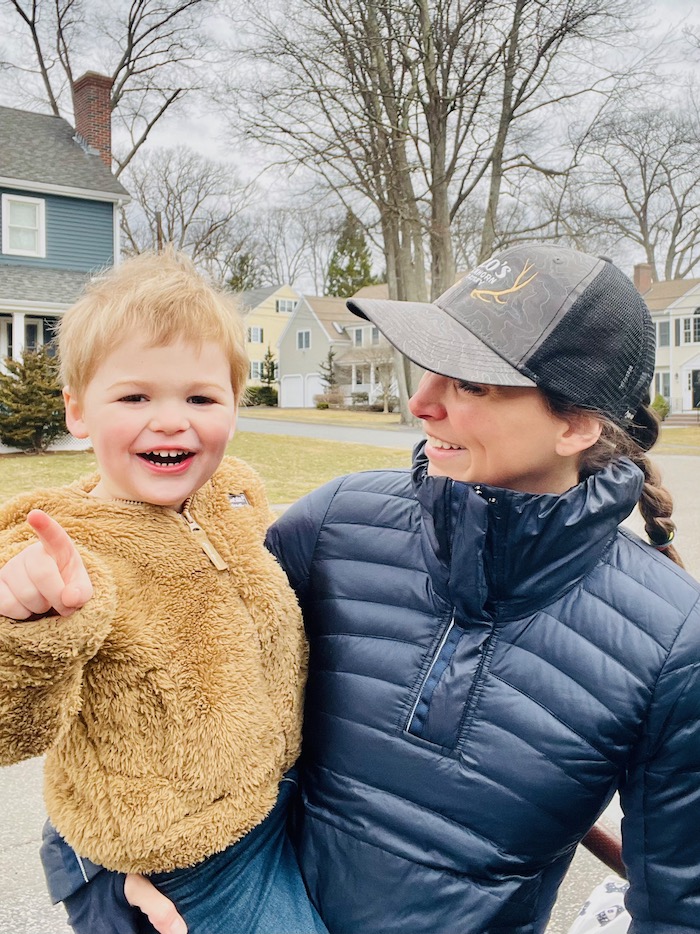
Instead of demonstrating confusion between two different languages, very young bilingual children actually tailor which language they use to the circumstance at hand. When asked questions, for example, they’re likely to respond in the speaker’s chosen language.
13. It can take longer to learn two languages than one.
Don’t be discouraged! Although there is evidence that monolingual and bilingual children reach their language milestones around the same time, it is normal for there to be a developmental gap between a bilingual child mastering two languages and a monolingual child mastering one.
These lags in language proficiency decrease with age. Our son was late to start using words freely, even though he had excellent understanding of English and French as a young toddler. Now at three years old, he never stops talking and has a hefty vocabulary in each language.
14. Even so, a bilingual child’s proficiency in their dominant language ends up being equal to a monolingual child’s proficiency in that language.
Most bilingual kids are stronger in one language than the other. As they develop, their proficiency in their primary language doesn’t end up lagging behind the capabilities of a monolingual child.
15. Many bilingual toddlers have better receptive than expressive skills.
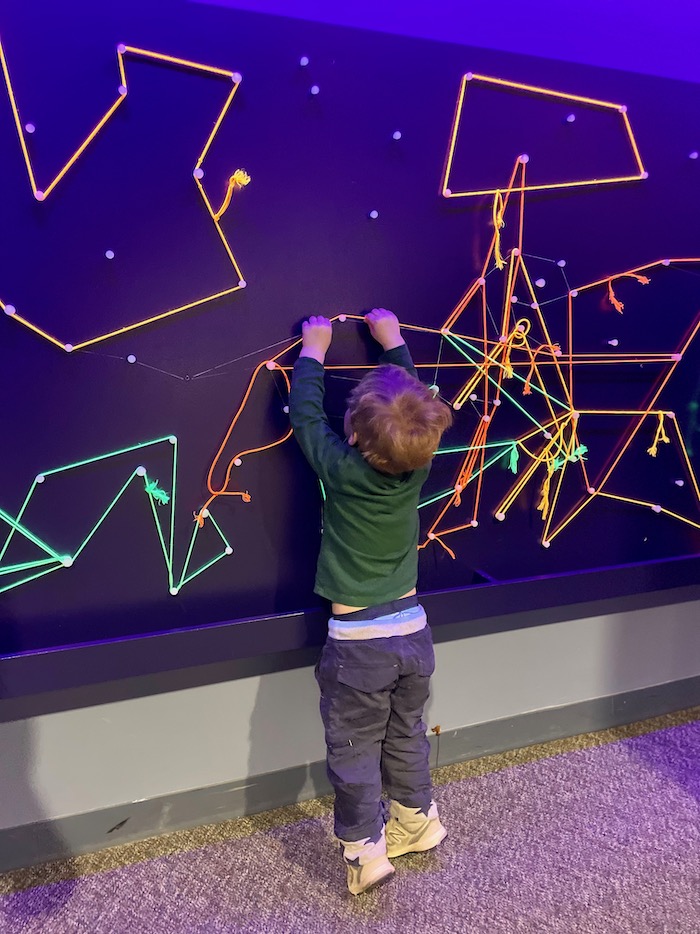
When we spoke with one pediatric expert about our son’s speech progress, she described it as normal for bilingual toddlers to experience a quiet period in language development. She explained that the brain is working hard to learn two entirely different speech patterns and vocabularies, taking it all in rather than speaking out loud. As she predicted, the quiet period ended after several months, and our son quickly surpassed his expected language milestones.
Studies have supported the idea of bilingual toddlers remaining more reserved before their expressive speech really blossoms. While parents shouldn’t be discouraged by this experience, it’s a good idea to discuss it with the pediatrician for tools and resources along the way.
16. Young bilingual children may have excellent understanding of two languages, even if only expressive in one.
It’s often the case that a child chooses to speak one language more frequently than the other. Parents should know that this doesn’t mean their understanding of the second language is lacking.
17. Firstborn bilingual children tend to be more proficient in their minority language, compared to younger siblings.
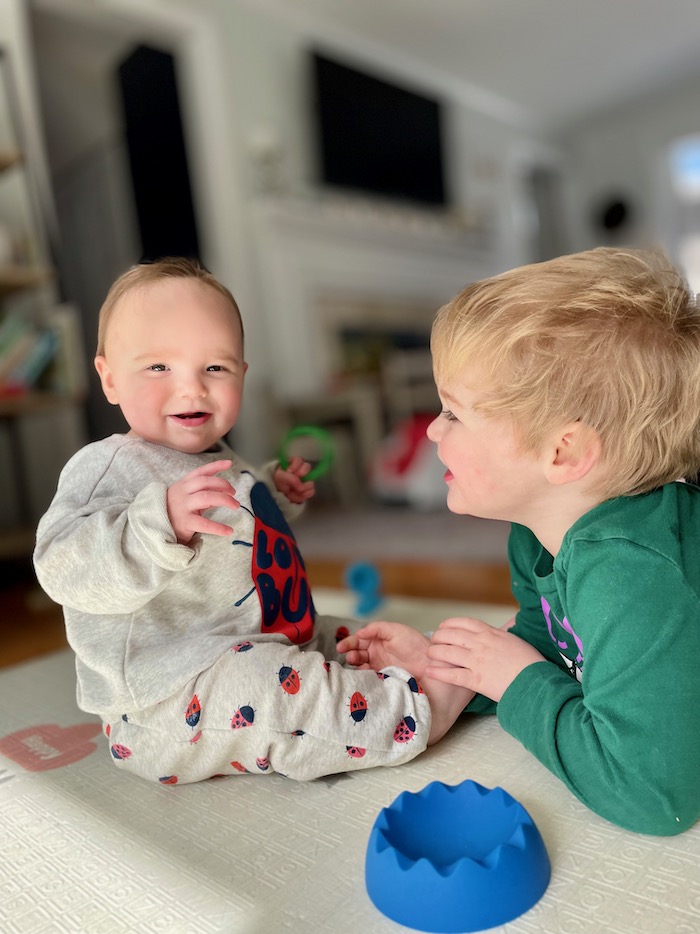
Many bilingual households use a minority heritage language at home and a dominant language with others in the community. Research shows that firstborn children have better mastery of their heritage language, while younger siblings tend to be more proficient in the dominant language for the local area. This is likely because younger siblings are exposed to older brothers and sisters going to school and bringing home the common words and expressions they hear from others.
How do bilingual parenting styles alter child language proficiency?
18. The quantity of language exposure matters.
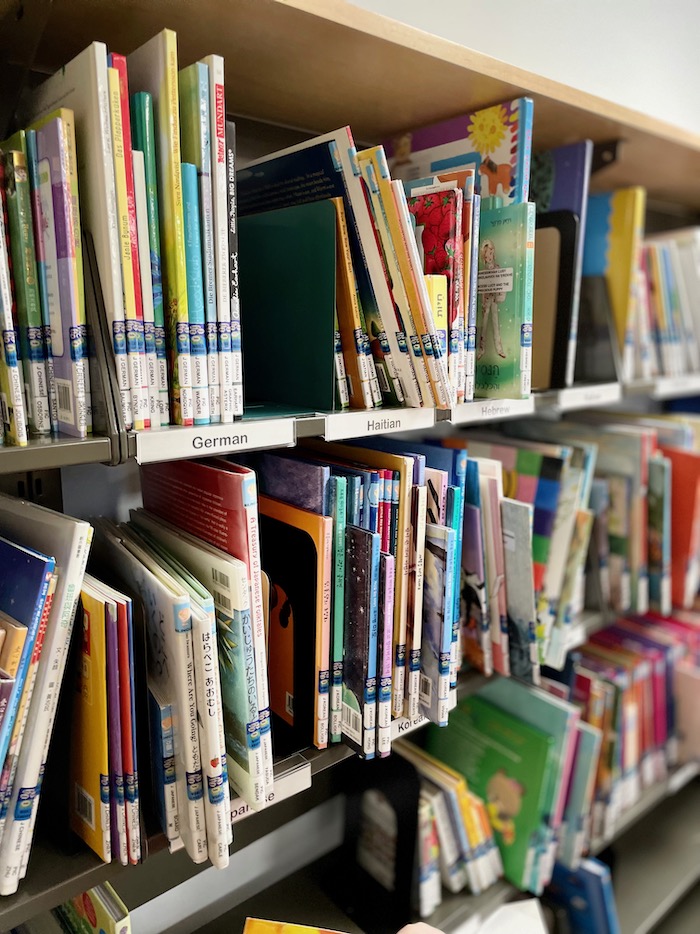
The more a child is exposed to any given language, the more words they’ll learn in that language. This relationship is evident in little ones as young as one year old.
19. A toddler’s vocabulary in two languages combined predicts English proficiency later in life.
If English is dominant in your area, speaking to your toddler more in your family’s heritage language won’t hold them back from mastering English as they get older. In fact, if they know more words between the two languages combined in toddlerhood, they’re more likely to have greater proficiency in English later in life.
20. Caregiver language input directly influences child language aptitude.
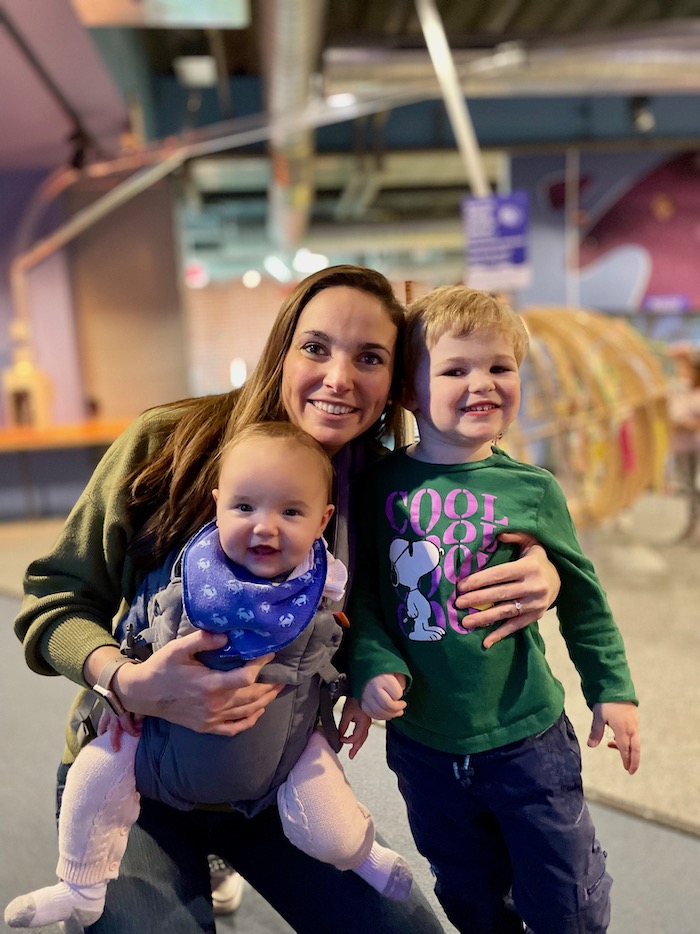
Language input from parents specifically — not just from childcare or school — has a major effect on child speech development. One study found that when moms spoke to their bilingual children more in Spanish and English at 18 months, those toddlers had a greater increase in vocabulary, faster speech processing, and better word recognition at 24 months. Further research has demonstrated that parents’ diversity of word choice and sentence structure translates to more diversified speech for their bilingual youngsters, too.
21. Reading directly affects language competence.
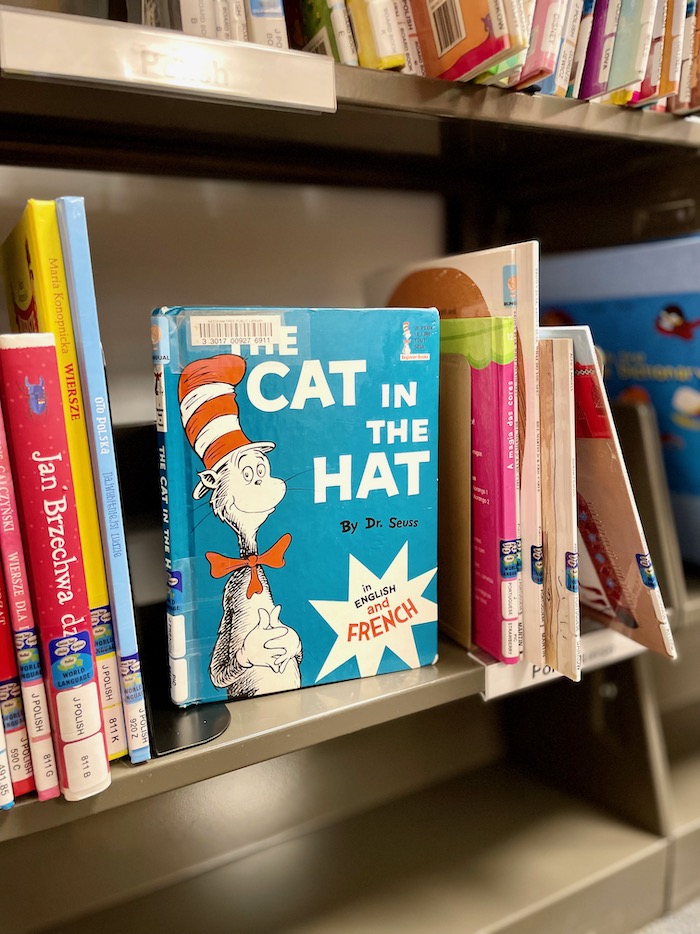
For many years, pediatric experts have championed reading to babies and toddlers as an important way to set them up for success in school. It turns out that reading is one of the best ways to boost a child’s vocabulary in minority languages, too. We love to check out bilingual books from the library as a way to introduce new words and concepts to our kids.
22. Increased television exposure does not improve a bilingual toddler’s vocabulary.
In moderation, the television is a helpful tool for parents trying to get dinner ready, but it’s important to know that it’s not an effective method for youngsters to learn a second language. Research has established that the quantity of television watched in any given language does not help a toddler’s vocabulary, and poor-quality television can actually hinder it.
23. Bilingual children learn their family’s heritage language better when exposed to multiple people who speak it.

In our household, Dad is a native French speaker who is also fluent in English, and Mom (i.e., me!) speaks only English (and maybe some low-quality French). Our children will be better equipped to become adept in French the more they hear it from a variety of people in addition to their father, like aunts, uncles, and grandparents. The benefit children receive by hearing a language from multiple people is even greater when they hear it from native speakers.
24. There is no evidence that parents need to follow the “one speaker, one language” method.
Many parents raising their children in a bilingual environment have heard of the “one speaker, one language” style, where each parent or caregiver has a designated language to use with the kids at all times. We heard about this method repeatedly when talking to friends and pediatricians about raising our children to learn English and French. The suggestion was that children could become confused if they heard various languages coming from the same person at different times.
There is, however, no evidence to support the idea that each parent needs to stick with only one language. Parents should choose the bilingual parenting style that works best with their family, and it doesn’t have to be set in stone. We often switch which language we’re using when speaking with our kids, and so far they’ve demonstrated no signs of confusion.
25. There is no one uniform bilingual experience.
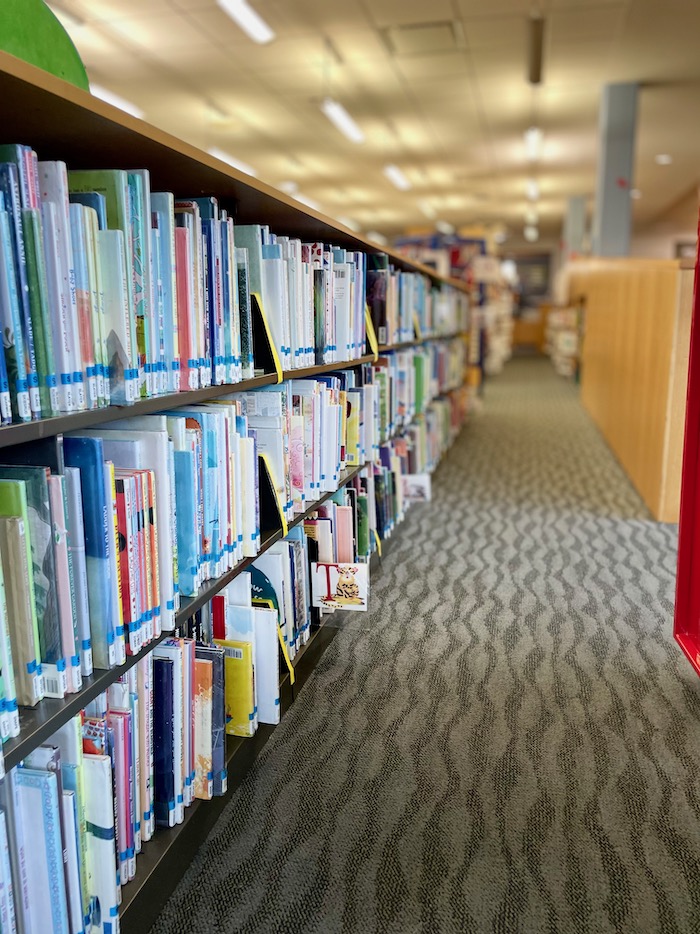
No matter how many people you ask about raising their children to be bilingual, you’ll never hear of the same experience twice. Majority and minority languages are used with differing frequencies and by different people in each situation, and learning a second language carries a special significance for every family. There is no single bilingual parenting style that works for everyone, and no two bilingual upbringings will be the same.
***
We hope this list gives you some helpful tools for introducing a second language to your little one’s expanding vocabulary. As they grow, never hesitate to reach out to their pediatrician for further input on language learning and development concerns.
Although it can feel overwhelming to raise your youngster to speak two languages, know that you are empowering them with a special piece of family history and equipping them with social, cognitive, and practical skills that will benefit them for their entire lifetime.






